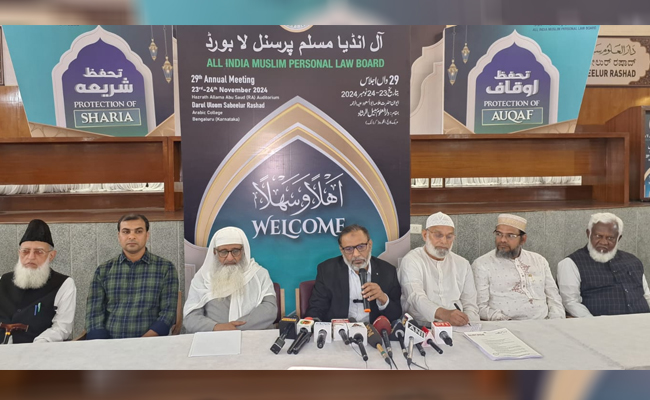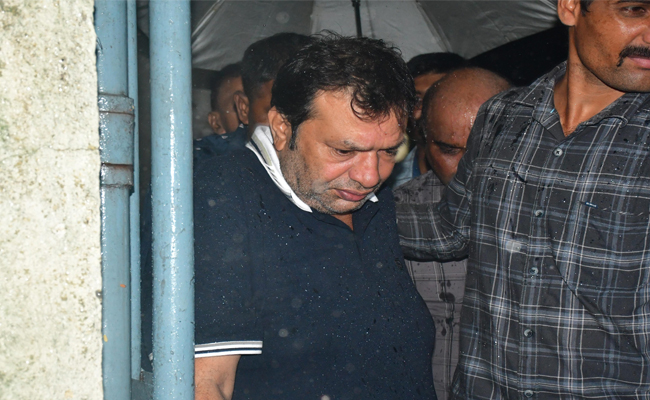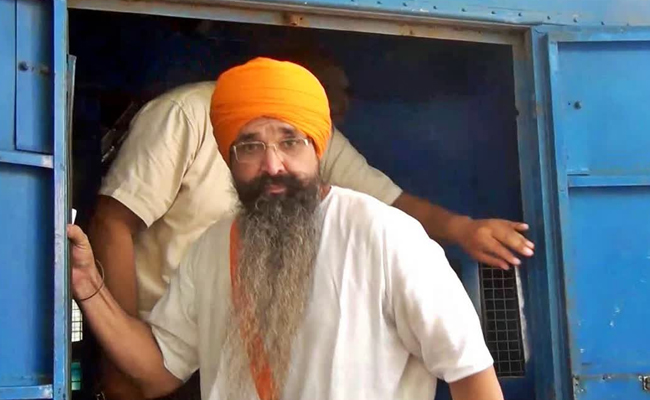New Delhi, Oct 25: Calling it "frivolous", the Supreme Court on Friday dismissed a plea of the CBI challenging a Bombay High Court order that quashed the look out circulars (LOC) issued against actor Rhea Chakraborty and her family in the death case of actor Sushant Singh Rajput.
A bench comprising Justices B R Gavai and K V Viswanathan warned the probe agency and remarked it had moved a "frivolous petition" only because one of the accused was a high-profile person.
The bench further warned to impose costs on the probe agency for filing such a plea.
"If you want cost and some compliments to the CBI, we will pass-over," the bench said.
When the matter was first called out for hearing, a lawyer sought it to be passed over as the main CBI counsel was in another court. When the matter came up later, the counsel for the CBI appeared in court.
"Don't come tomorrow, otherwise costs and compliments to the CBI,” the bench reiterated.
The Bombay High Court had on February 22 quashed the LOCs issued against Chakraborty and her brother Showik and their parents -- Indrajit and Sandhya.
The high court held the LOCs -- issued against them in 2020 -- could not be sent out on the mere registration of an FIR while allowing the pleas of the Chakrabortys.
The actor and her family members were observed to have cooperated with the investigation of the CBI by appearing before the agency whenever summoned without attempting to evade it.
"An LOC is a coercive measure to make the person surrender and as such interferes with the person's right of personal liberty and free movement and curtails the fundamental right of an individual to travel, guaranteed under Article 21 of the Constitution," the high court had said.
The bench added the reason for issuing an LOC -- the apprehension of the agency -- needed to be spelt out.
Rajput was found dead in his apartment in suburban Bandra on June 14, 2020 following which the Mumbai police registered an accidental death report and started the probe. Rajput's father, however, in July 2020 lodged a complaint with the Bihar police, alleging the actor's purported girlfriend Chakraborty and her family members had abetted his suicide.
The case was later transferred to the CBI, which has been investigating it.
In 2020, both Rhea and Showik were arrested by the Narcotics Control Bureau in a drugs case related to Rajput but were granted bail later.
Let the Truth be known. If you read VB and like VB, please be a VB Supporter and Help us deliver the Truth to one and all.
Bengaluru: The All India Muslim Personal Law Board (AIMPLB) on Monday addressed a press conference following the conclusion of its national convention in Bengaluru. The Board raised concerns over several pressing national and international issues, including the Waqf Amendment Bill, the Uniform Civil Code (UCC), and recent controversies surrounding places of worship in the country. The Board also spoke about the ongoing conflict in Gaza, terming it a "genocide."
Syed Qasim Rasool Ilyas, spokesperson for the AIMPLB, strongly opposed the proposed Waqf Amendment Bill, warning the government of protests and legal challenges if the bill is passed without thorough consultation with all stakeholders.
"Waqf properties are donated specifically for the benefit of the Muslim community and for charitable purposes. These properties cannot and should not be altered or interfered with by the government," he said. Ilyas emphasized the historical and legal sanctity of Waqf properties, stating that any changes to the law without proper discussion would be unacceptable to the community.
The Uniform Civil Code (UCC) was another critical issue discussed during the convention. Ilyas reiterated the Board's long-standing opposition to the UCC, stating that it threatens the pluralistic nature of Indian society.
"The UCC will disrupt the very fabric of this country. India thrives on its diversity, and a uniform code disregards this essential characteristic," he said. He explained that the Indian legal framework already accommodates individuals who choose not to follow their personal laws.
Ilyas also criticized the UCC implemented by the Uttarakhand government, calling it unconstitutional. "How can it be called a 'Uniform Civil Code' when it is applied only in one state?" he questioned. The AIMPLB plans to challenge the Uttarakhand UCC in the Nainital High Court through a Public Interest Litigation (PIL) soon.
The Board also addressed growing tensions surrounding places of worship, particularly the rising claims that some mosques were originally temples. Ilyas pointed out that such disputes are in violation of the Places of Worship Act, 1992, which mandates that the status of religious sites shall remain as they were in 1947.
"The Supreme Court, in its verdict on the Babri Masjid case, clearly stated that no further disputes of this nature should arise. Yet, we see new cases being brought up regularly," he said.
Citing a recent incident in Sambhal, Uttar Pradesh, where police action against protesters left two dead, Ilyas condemned the violence. "This incident was tragic and could have been avoided. It is deeply condemnable," he added.
The AIMPLB also expressed solidarity with the people of Palestine, highlighting the ongoing crisis in Gaza. Ilyas termed the situation a "genocide," pointing to the reported deaths of over 45,000 people in the last year.
"This is not a war; it is a genocide. The international community must take urgent steps to address the issue," he said. The Board called for a two-state solution as a pathway to peace and justice in the region.
The press conference was attended by several senior AIMPLB officials, including the Board’s president, Maulana Khalid Saifullah Rahmani. The officials emphasized the need for unity among stakeholders and the Muslim community to address the challenges highlighted during the convention.
The AIMPLB pledged to continue its advocacy through protests, legal actions, and public engagement to safeguard the rights of the community and uphold the constitutional values of the country.





